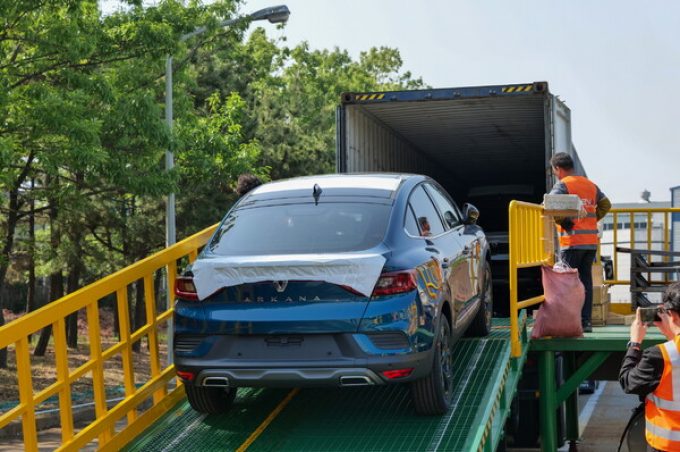Could this five-in-one collapsible container finally be the game-changer?
Compact Container Systems (CCS) has released its SeaFold HC 40ft, a folding container that can ...

With charter rates for pure car and truck carriers surging four-fold from pre-Covid-19 levels, Renault Korea will start using 40-foot containers to ship more of its South Korea-made Arcana models to Europe.
Renault Korea’s decision comes after the French car maker experimented with using containers to ship a handful of cars from Busan port early this year.
It is unprecedented for a major car maker to ship mass-produced cars in containers, although it is common for used cars to be containerised. The ...
Volcanic disruption at Anchorage could hit transpacific airfreight operations
Shippers snap up airfreight capacity to US ahead of tariff deadline
New price hikes may slow ocean spot rate slide – but for how long?
Tighter EU import requirements proving 'a challenge' for forwarders
Supply chain delays expected after earthquake hits Myanmar
Looming Trump tariffs will create 'a bureaucratic monster' for Customs
Forwarders stay cool as US 'liberation day' tariffs threaten 'global trade war'

Comment on this article